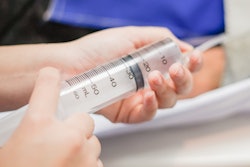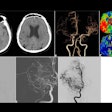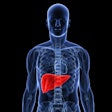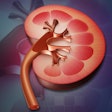
Having a genetic predisposition to allergies could increase an individual's risk of having an adverse reaction to iodine contrast agents, according to an article published online September 3 in Radiology. Identifying these individuals in advance could help prevent unnecessary complications for contrast-enhanced CT.
Researchers from South Korea conducted a large-scale, multicenter study to establish a registry for iodine contrast media and adverse events -- the first of its kind in the country.
Most symptoms of hypersensitivity reactions to iodine contrast are mild, but some cases do result in severe, life-threatening events, the group noted. Yet attempts to identify individuals with the greatest risk of an allergic reaction have mostly produced inconsistent results.
"We wanted to emphasize in our study the importance of premedication and change of iodinated contrast media type as useful preventive measures to prevent recurrent hypersensitivity reaction," co-lead study author Dr. Min Jae Cha from Chung-Ang University Hospital said in a statement. "Hypersensitivity reactions to iodinated contrast media are not rare, but many of them are still preventable."
To that end, Cha and colleagues examined the data of 196,081 patients who underwent an iodine contrast-enhanced CT scan between March and October of 2017 at seven different institutions. The average age of the patients was 59.1 years and 53.6% were male. The proportion of patients who had a hypersensitivity reaction to iodine contrast was 0.73%, and 0.01% had a severe reaction.
After examining the data, they identified statistically significant associations between hypersensitivity reactions to iodine contrast and several genetic factors: previous patient or family history of an allergic reaction to iodine contrast, hyperthyroidism, and other allergies.
| Association between an allergic reaction to iodine contrast and patient factors | |||
| Odds ratio | |||
| Previous patient history of a hypersensitivity reaction to contrast | 198.8 | ||
| Family history of hypersensitivity reactions to iodine contrast | 14 | ||
| Nondrug-related allergies | 6.8 | ||
| Hyperthyroidism | 3.6 | ||
| Drug allergy | 3.5 | ||
Furthermore, the researchers found that giving patients anti-inflammatory medication before they underwent a contrast-enhanced CT exam and changing the generic profile of the contrast agent significantly reduced the likelihood of repeat reactions.
The associations between various patient factors and reactions to contrast show that certain individuals are genetically predisposed to reactions, Cha said. Providing the proper medication to these individuals before they undergo CT may help mitigate unwanted complications.
Moving forward, the group plans to continue exploring the relationship between genetic susceptibility to iodine contrast by investigating specific genes for other health conditions, such as hay fever and atopic dermatitis, that may be linked to adverse contrast reactions.
"We hope that we can establish a systematic nationwide integrated registry for iodine contrast media-related hypersensitivity reactions in Korea soon, and our study could be a first step toward that goal," Cha said. "Large-scale and long-term registries involving continuous data collection with standardized protocols will help us unravel all aspects of the contributors to the occurrence and recurrence of hypersensitivity reactions to iodinated contrast media."




















